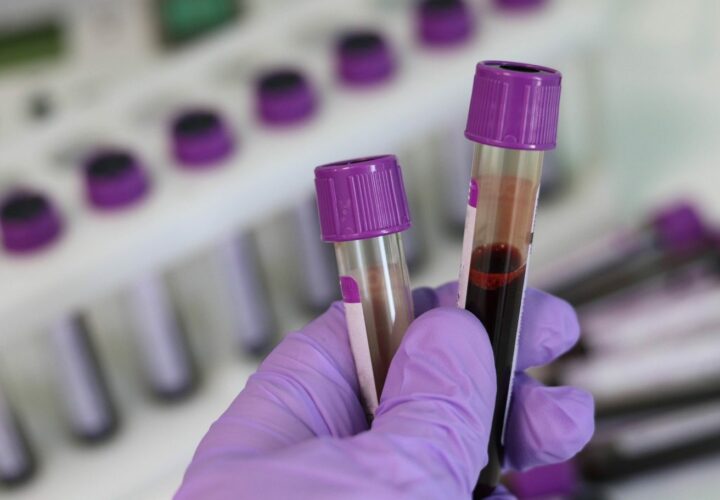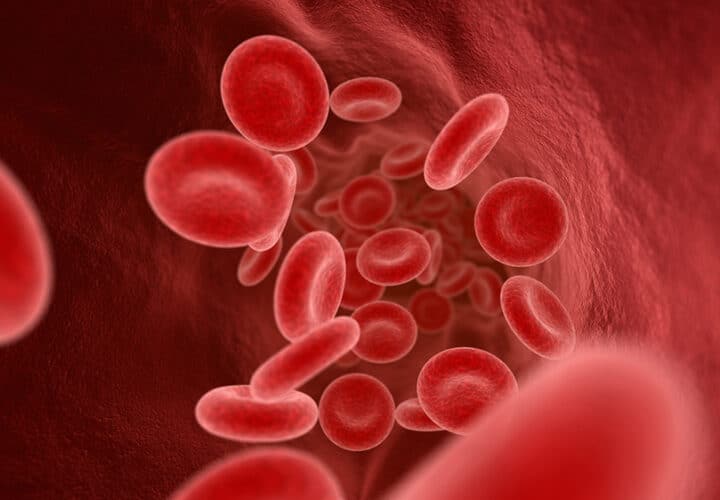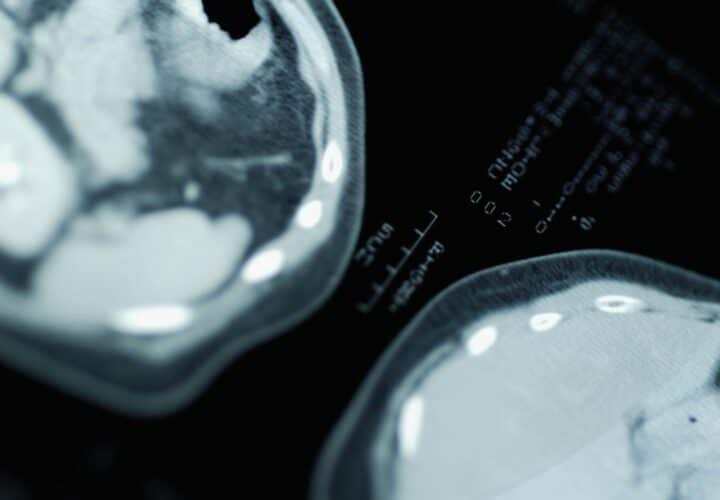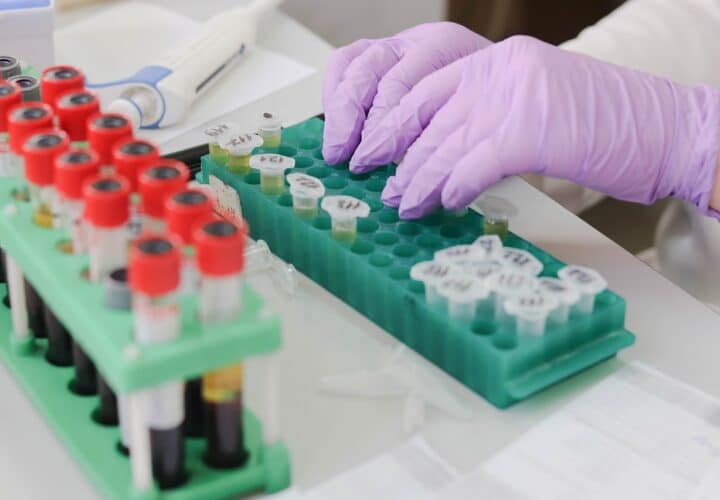Researchers have developed yet another blood test that may help diagnose Alzheimer’s disease. The blood test is able to detect core biomarkers of the neurodegenerative disease in plasma--the liquid found in blood.
Researchers have developed yet another blood test that may help diagnose Alzheimer’s disease. The blood test is able to detect core biomarkers of the neurodegenerative disease in plasma–the liquid found in blood. The test, developed by researchers at the Korea Advanced Institute of Science and Technology (KAIST), involves a multiplexed electrical biosensor that’s considered highly sensitive. The biosensor is able to identify Alzheimer’s biomarkers including beta-amyloid42, beta-amyloid40, total tau protein and phosphorylated tau protein.
When measuring the blood test on patients with Alzheimer’s in comparison to healthy individuals, the researchers found the test had an 88 percent average accuracy.
Blood Tests For Alzheimer’s Biomarkers
In the study, the researchers noted that the main pathological hallmarks of Alzheimer’s include beta-amyloid plaques and neurofibrillary tangles, as well as tau aggregation. The levels of amyloid and tau in the brain tend to change and increase years before symptoms appear.
Up until recently, doctors relied on autopsy to reveal the buildup of these proteins in the brain and officially diagnose Alzheimer’s. More and more, the use of PET scans and cerebrospinal fluid samples has made it easier for doctors to diagnose the disease before death, and sometimes even before some of the major symptoms appear. Being able to identify amyloid in the brain early on can help make diagnoses quicker, which in turn improve a patient’s access to treatment and chance of delaying the disease.
Recent research has also shown that these biomarkers show up in blood plasma as well, correlating with brain changes. The researchers of the latest study thus decided to hone in on the blood as a potential detection tool.
It’s not a new idea, however. Blood tests have been developed before to detect Alzheimer’s, and some have had 100 percent accuracy in diagnosing the disease.
French company Amoneta Diagnostics received $3.5 million from the Alzheimer’s Drug Discovery Foundation in 2019 to develop this type of blood test, which focused primarily on identifying certain nucleic acids, RNA, in the blood.
“When the disease kicks in, it triggers many, many things–the cells become abnormal, neurons start to degenerate–and the whole landscape of long non-coding RNA radically changes,” Olivier Danos, who was heading the RNA blood study, said in a past interview with Being Patient.
“It’s not much of a surprise that when a cell is not feeling well, everything changes in there,” he continued. “What’s surprising is that in the case of Alzheimer’s disease, it always changes in the same way.”
Steve Park, an investigator on the latest blood test that focuses on beta-amyloid and tau biomarkers, noted that the next steps would entail focusing on a population of people who have not yet developed Alzheimer’s symptoms.
“This study was conducted on patients who are already confirmed with Alzheimer’s disease,” Park said in a news release. “For further use in practical setting, it is necessary to test the patients with mild cognitive impairment.”






Where can I get a blood test ? I’m an hour from UMASS, Worcester MA. Boston is difficult to negotiate when driving or taking MBTA with maps and walking. Surely I would get lost.
Hello Trish, the blood test is in the R&D phase. It’s is not available to practitioners yet. ~ Thank you.
When will this become available. I am 58 and my mom just died of this horrible disease and it is in the family. I want to get checked for it as Iam having problems with memory lately.